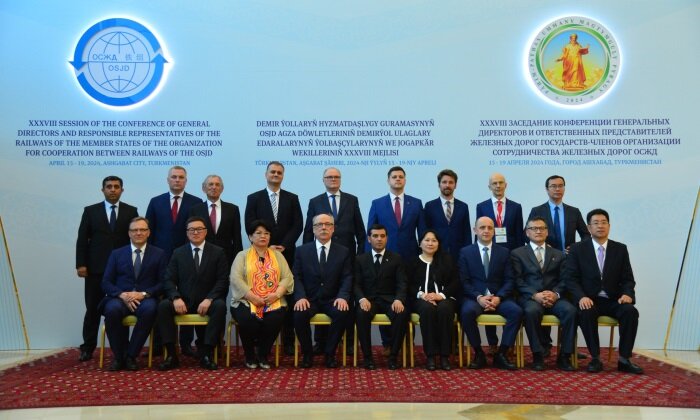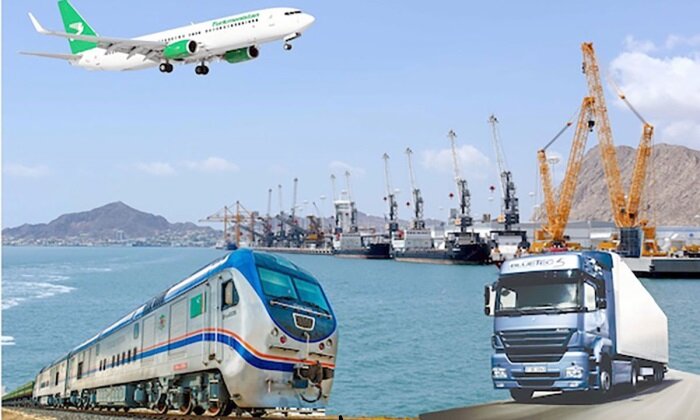 On September 23, President of Uzbekistan Shavkat Mirziyoyev addressed the General Debate of the 75th session of the UN General Assembly.
On September 23, President of Uzbekistan Shavkat Mirziyoyev addressed the General Debate of the 75th session of the UN General Assembly.
His speech was the second one from the high rostrum of the UN and was instantly covered by leading foreign and local media. Such an interest in the performance of the president was highly anticipated. All speeches of the Uzbek leader bring new and demanded ideas, which are realized later.
In this regard, I would like to highlight a block of issues related to regional development and security in Central Asia, as well as support for the peace process in Afghanistan, which is always in the center of attention of the president of Uzbekistan.
A good example of it is the previous speech of president Mirziyoyev at the 72nd UN Assembly in 2017. At that time president Mirziyoyev voiced proposals that were implemented and made it possible to set new trends in the development of Central Asia. They led to the start of the transformation of Central Asia, turning the region from a potential point of tension due to tough contradictions between neighbors into «an example of their consolidation, strengthening mutual understanding and interaction».
Moreover, each initiative voiced by the president has not only been fully realized but has become a symbol of a new era of regional cooperation between the Central Asian countries.
For example, the Samarkand Conference on Central Asia made it possible to form the so-called. «Regional» or «Samarkand» consensus, which marked the commitment of the countries of the region to strengthening good-neighborliness through dialogue and cooperation. And the Consultative Meetings of the Heads of Central Asian states, proposed by President Mirziyoyev, made a foundation for a regular, direct intraregional dialogue, which hasn’t been established for decades.
In his speech at the current session of the UN General Assembly, the head of Uzbekistan once again paid special attention to the issues of stable and sustainable development of Central Asia.
In particular, the president of Uzbekistan proposed to hold an international conference dedicated to the 10th anniversary of the Joint Action Plan of the Central Asian countries on the implementation of the Global Counter-Terrorism Strategy in Tashkent. It must be added that Central Asia was the first region where its comprehensive and complex implementation was launched.
UN Secretary-General Antonio Guterres has repeatedly noted that Central Asia is a successful example of the implementation of the Global Counter-Terrorism Strategy.
What is the reason for such success in the Central Asian countries? First of all, it is a common understanding of the threats of terrorism. Cooperation is built on the recognition of the principle of «indivisibility of security», as well as refusal to divide existing challenges and threats «into our own and others».
Thus, the Joint Action Plan serves as a basis for consolidating the efforts of the countries of the region in combating terrorism by applying a unified approach to implementing the provisions of the UN Global Counter-Terrorism Strategy. It defines joint actions, strategic directions and means of their implementation, by facilitating comprehensive, global, and coordinated efforts of stakeholders.
Most importantly, the effectiveness of the Joint Action Plan is proven in practice. Central Asia remains a relatively stable region today. According to the EBRD, Central Asian countries account for only 0,08% of global terrorist attacks.
In the Global Terrorism Index, prepared by the Institute for Economics and Peace, Central Asia is included in the category of regions with a low level of the terrorist threat. At the same time, Uzbekistan is recognized as one of the safest countries in the world (135th place out of 138).
The conference initiated by the president of Uzbekistan will contribute to the search for collective answers to the relevant challenge of our time — terrorism. Such forums serve as a generator of new and demanded ideas, which are realized after the event.
It is planned to gather representatives of authoritative international structures at this site, including the Secretariat and the UN Counter-Terrorism Office, the SCO RATS, the CIS Anti-Terrorism Center, the OSCE, as well as prominent experts from Central Asia and other regions of the world.
Such a representative and inclusive composition of participants will allow us to take a new look at the issue of security and cooperation in the region and beyond, understand what needs to be done, and develop the necessary recommendations that can be successfully applied in the implementation of the Global Counter-Terrorism Strategy in other parts of the world.
Thus, the implementation of this initiative will become the «institutionalization» of Uzbekistan’s contribution not only to regional but also global security. And its support from neighboring countries will confirm the growing role and commitment of the Central Asian states to combat the threats of international terrorism.
A logical addition to efforts to strengthen the stability of Central Asia was also the call of president Mirziyoyev to support the Afghan peace process that had begun and the proposal to create a permanent UN Committee on Afghanistan.
Today, more than ever, it is important for the intra-Afghan dialogue to end with the achievement of truly stable and lasting peace, and not a tactical truce between the parties.
It is important not to allow the inter-Afghan talks that have started to become another missed chance for peace, which the history of Afghanistan had before. Attention to the Islamic Republic should not be reduced, even despite the possible withdrawal of foreign troops.
The creation of an international platform for comprehensive support of the peace process, proposed by Mirziyoyev can play a significant role in this direction.
Obviously, in a situation when about 75% of government spending is covered by donors, and foreign aid is almost 50% of the budget, the provision of further consolidated international support for Afghanistan is key to stabilizing the situation and the sustainability of all peace agreements.
In this regard, as many experts have already noted, the creation of a permanent UN Committee as a single platform for assistance to Afghanistan will allow:
— to ensure that the problem of Afghanistan remains in the spotlight of the world community, the UN;
— to act as a platform where great powers and regional players will be able to hold the dialogue necessary to maintain peace, prevent the intensification of confrontation between the intra-Afghan fractions;
— to ensure the exchange of information on the issues of combating terrorism, maintaining regional security and stability;
— to mobilize international efforts aimed at implementing highly demanded infrastructural and socio-economic development projects in Afghanistan. The principle «from instability and destruction to peace and creation» should become an effective basis for promoting and achieving long-term peace in this country.
It should be noted that considering the situation in Afghanistan, the head of Uzbekistan does not just focus on the future, issues of war and peace, but looks forward to the long term. Presenting his vision, president Mirziyoyev focuses on the strategic opportunities of today within bringing Afghanistan towards peace. This approach compares favorably with others and is gaining recognition both within Afghanistan and beyond its borders.
Objectively, peace in Afghanistan is a guarantee of the development not only of this country itself but also of all the states of Central Asia, the expansion of their multi-level contacts with neighboring states. For many centuries, Afghanistan has acted as a link between Central Asia and South Asia. People and goods continuously flowed through this territory. However, in recent decades, Afghanistan was turned into a buffer state, remained cut off from economic processes in neighboring regions. Within the prospect of peace, all the necessary conditions are created for Afghanistan to revive its historical role as a natural bridge uniting Central and South Asia.
Today Afghanistan opens a direct and shortest way to the countries of Central Asia to the ports of the Indian Ocean and the Persian Gulf, India, and Pakistan. In turn, the South Asian states gain access to the markets of the CIS, Europe, and China through Afghanistan.
Strengthening of interconnectedness, favorable internal, and external preconditions for the development of trans-regional trade relations will also be formed.
It should be noted that trade in this direction is still far from its potential. For example, due to the lack of direct transport corridors, the trade turnover of Uzbekistan with India and Pakistan is only about 500 million dollars.
At the same time, the market of South Asian countries is one of the most promising for Uzbekistan and other Central Asian countries. With a total population of 1.9 billion people. (¼ of the world) and GDP 3.5 trillion dollars South Asia is the fastest-growing region of the world (up to 7,5% per year). By 2030, in terms of the volume of the consumption market, India may become the third largest state in the world after the United States and China.
Taking into account the export potential, Central Asian producers have every opportunity to successfully compete in the Indian and Pakistani markets. The countries of the Persian Gulf show interest in Uzbek products, primarily agricultural products, the opening of a road through Afghanistan can make this trade commercially profitable.
For example, the construction of a railway line from Mazari-Sharif to Peshawar will significantly reduce the cost of transporting goods. Moreover, not only Uzbekistan will benefit. This is beneficial to all countries of Central and South Asia, the Near and Middle East.
In conclusion, I would like to emphasize that the speeches of all the heads of the Central Asian countries at the UN General Assembly showed the presence of a similar understanding of the tasks and goals of regional development they face. For example, the head of Kazakhstan Tokayev, like president Mirziyoyev, stressed the importance of joining efforts to solve the problem of climate change and mitigate the consequences of the Aral Sea tragedy. In turn, the president of Kyrgyzstan Jeenbekov also raised the issue of developing a system of transport and communication corridors in Central Asia. The presidents of Tajikistan and Turkmenistan shared with the Uzbek leaders the point of view on the importance of socio-economic assistance to Afghanistan for ensuring further sustainable development of the region.
Such joint movement is a reliable guarantee of further consolidation of the region within common goals. There is a complex of common potentials to ensure sustainable development, peace, and stability throughout Central Asia. At the same time, the example of mutual understanding and rapprochement demonstrated by the Central Asian republics can become a popular model of mutually beneficial cooperation for use by other regions of the world.
Such a «positive presentation» of the region on the world stage will only increase the strategic importance of Central Asia in the world economy and international affairs.
Author: Director of the Institute for Strategic and Interregional Studies under the President of the Republic of Uzbekistan Eldor Takhirovich Aripov.






